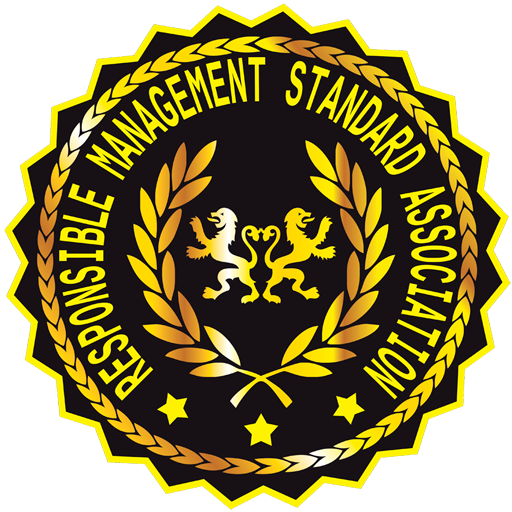Certified Training Programs
RMSA is pleased to offer the 3 certified training programs, leading to the following professional designations:
- ESG Certified Professional®
- ESG Certified Analyst®
- ESG Certified Auditor®
RMSA is the only professional association which provides comprehensive ESG certified training programs for business professionals, financial analysts and internal auditors.
All the certified training programs can be studied online, which feature a combination of written study material, multimedia slideshow and simulated or actual hands-on projects. From time to time, RMSA will conduct overseas 24 hour workshop with strategic partnership in major cities all over the world.
The RMSA Committee on Education overseas all initiatives related to study material performance, requirements and project assessment. RMSA’s University Partnership Initiative promotes the incorporation of standards-related information into the curriculum of colleges, universities and academic institutions.
Body of knowledge
A body of knowledge is the complete set of concepts, terms and activities that make up a professional domain, as defined by Responsible Management Standard Association (RMSA). The body of knowledge for each certification program is outlined as follow:
Part 1: Principle of Responsible Management
- Framework of responsible management
- The strategic challenges of ESG factors
- The basics of sustainability, compliance and social responsibility
- The regulatory context and key ESG market drivers
- The leadership requirements for the strategic ESG change
- The role of responsible management system
- The stakeholder management and involvement
- The ESG analysis and materiality matrix
Part 2: ESG Implementation Guidelines
- ESG planning and analysis
- Leadership system
- Business scope redefinition
- The ESG criteria and measures
- The integrated management structure
- Corporate governance and control
- Resources planning and evaluation
- System documentation
- ESG management program(s)
- Plan-Do-Check-Act cycle
Part 3: ESG integration
- Investment value chain
- ESG integration matrix
- ESG integration process
- ESG criteria and valuation model
- The mapping of ESG factors with income statement
- Financial analysis and risk management
- ESG valuation methods
- Responsible investment and principles
- ESG Beta strategy versus ESG Alpha strategy
- ESG value chain and integrated reporting
Part 4: ESG Reporting Framework
- Principle of ESG reporting
- The business case of responsible management
- ESG project management
- The characteristic of ESG reporting system
- The ESG subject areas, aspects and KPIs
- ESG reporting structure
- An example of ESG report
Part 1: ESG Impact on Investment Decision
- ESG risk and opportunities
- ESG integration approach
- The framework of ESG valuation models
- The key value drivers and ESG factors
- ESG value chain and strategy
- Principles of responsible investment
- The framework of responsible investment
- ESG rating agencies
- ESG reporting framework
Part 2: The Intangible Value of ESG
- The value creation of corporate assets
- ESG factors in corporate valuation
- ESG value-based management
- Strategic themes of ESG factors
- ESG materiality management
- ESG Balanced Scorecard
- ESG risk management
- The valuation methods of ESG impact
- The different approach of ESG integration
Part 3: Risk-adjusted Performance Measures
- ESG risk and expected return
- Investing risk and volatility
- A portfolio’s risk premium
- The Information ratio, Sharpe ratio, ESG Alpha and ESG Beta
- The lower partial moment
- The upper partial moment
- The maximum potential loss
- Value-at-risk and CVaR
- Loss-adjusted performance
Part 4: The Integration of ESG Alpha and Beta
- The ESG Beta universe
- The framework of ESG strategy
- The pitfalls of modern portfolio theory
- ESG Beta in asset allocation
- Responsible management and Alpha
- Active risk and ESG Alpha
- Risk budgeting and asset allocation
- The benchmark risk and active risk
- The responsible investment and performance
Part 1: The Reporting of Corporate Responsibility
- UN Global Compact and UN Principles of Responsible Investment
- Principles of Responsible Management
- GRI reporting framework
- Drivers for ESG reporting
- ESG reporting requirements
- Types of ESG reporting
- The missing link of ESG reporting
- Framework of responsible management system
Part 2: Management Standards, Auditing and Reporting
- Organizational context, ESG criteria and reporting
- Overview of ISO management standards and auditing
- Definition of audit
- Types of audit
- Internal audit and external audit
- System audit and process audit
- Compliance audit and performance audit
- Management audit and program audit
- Risk-based planning and audit priorities
Part 3: ESG Integration and Integrated Audit
- High level structure of ISO management standards
- The structure of an integrated management system (ISO 9001, ISO 14001, OHSAS 18001, SA 8000 etc)
- CR8001 ESG Management Standard®
- The responsible management system, auditing and reporting
- ESG audit and integrated audit
- Benefits of ESG audit
- Analysis of ESG audit coverage
- ESG audit planning and audit scope
Part 4: ESG Audit Plan and Implementation
- ESG Audit plan and objectives
- The audit checklist
- The audit process
- General principles for ESG auditing criteria and findings
- The role of auditors and audit team
- Competencies required for ESG audit
- ESG audit report
- Audit recommendations and follow up
